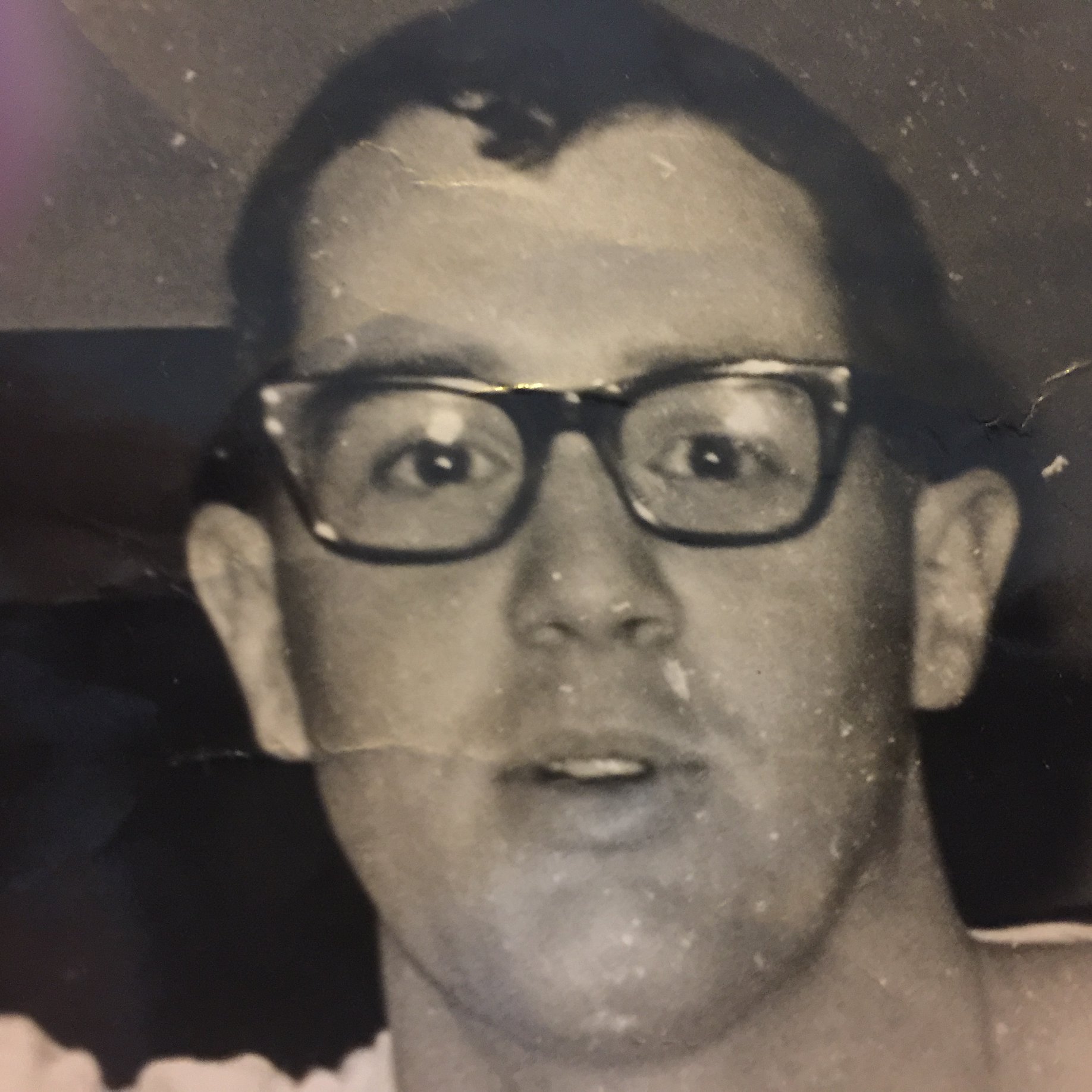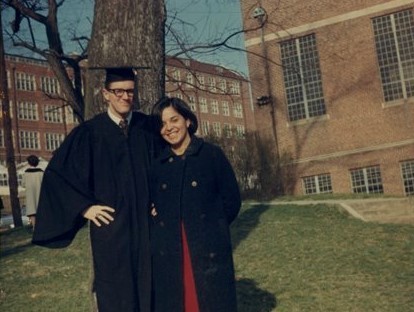Recently, my daughter started asking me questions about her father’s death. Not hard questions, really, just little details I’d laid to rest as life rolled on, but things she had a right to know. These conversations made me realize just how fuzzy my memory has gotten, even though this was the most catastrophic event I would ever live through.
I remember the white car careening across the center line and drifting toward us as it spun in slow, lazy rotations toward our Volkswagen bus (You don’t ever want to have a head-on collision in a VW bus, and you don’t want to try and get me to sympathize with drunk drivers. Just don’t). I remember handing Rachael to a stranger through the shattered windshield and begging Joe to talk to me. I remember waking up in a hospital, and I remember an officer with a shiny gold cross pinned to his lapel walking into my hospital room.

Joe Sbuttoni
Joe was a reluctant soldier, forced into the army straight out of college by that most useless of conflagrations, the Vietnam war (should I capitalize war? War? It was undeclared, so I really don’t know).
But he decided to enlist, hoping to acquire a bit more say in his own fate. And in that dumb, blunt-instrument Army way, I guess he did. He’d majored in journalism at U.T. and worked as a copy boy at the Knoxville Journal, where one of his duties was driving Editor-in-Chief Guy L. Smith home every night. Joe enjoyed that part of the job because Mr. Smith was kind to him and interesting to talk to. Smith had taken a liking to the hardworking Italian kid from Nashville and he even attempted to exert a little political pull to get Joe out of the draft, obviously to no avail.
The Army assigned Joe to the Signal Corps and sent him to microwave school where he learned to operate radios, not ovens. He never learned to love the Army, but he figured out how to roll with the punches, and wanted me to learn that lesson, too, since I wouldn’t be allowed to go where he expected to be sent next and would have to fend for myself.
Another of Joe’s Journal duties was to acquire photos of local soldiers killed in Vietnam. He’d cold-call the survivors’ homes and arrange to come by. He was one of those guys who could find humor in any situation, and although he dreaded knocking on those doors, it didn’t take him long to notice a trend: often times, when he’d go to the home of the deceased, he’d be told that the widow had gone shopping. Specifically, “She’s gone to Zayres-s.” always with that extra syllable.
When it came his time to enlist, he made me promise not to go to “Zayres-s” with his life insurance money.
He always left me laughing, like the time he told me that he’d gotten into trouble for having the Ramparts Magazine I’d sent him. When his sergeant found it under his bunk, he waved it around in the air and roared: “What do you think you are, Sbuttoni, a g..d….. individual?”
I guess that was one of the things his service number was supposed to counteract: g..d….. individualism.
We had a couple of mandatory separation periods while Joe was at Ft. Benning and again when he was sent to Germany – West Germany, as we called it during those Cold War days. I stayed behind and waited for Rachael to be born and wrote him every day. I put that service number, RA12903157, on every envelope.
Post-war Germany was a conquered nation divided down the middle. The U.S. and Great Britain occupied the West and were welcomed by the German people. The Russians ruled the East and lived up to their reputation as brutal occupiers.
Joe was stationed in the section of Germany known as Westphalia, down in the lowlands where Germany, Holland and Belgium meet. His unit was assigned to a massive British Royal Air Force base near the Dutch border. NATO was charged with keeping the peace in those Cold War days, and we stood ready to blow up the world in order to keep it safe from the Russians.
One afternoon, Joe sneaked us into the restricted area where atomic bombs were parked. Huge and silvery and semi-hidden in long, low sheds, they looked like Fat Man and Little Boy and sent a shiver down my spine. Rachael, less impressed, slept through the bomb inspection tour. It was such a Strangelove-esque sight that as the years passed, I sometimes wondered if I’d dreamt the visit to the verboten bomb depot.
The Germans we got to know well enough to talk to about such things liked Americans and were uniformly thankful it was us they were dealing with, and not the Russians, who terrified them. (Check out modern-day reporting from Ukraine – some things do not change).
Joe was killed December 15, 1968, and it was almost Christmas by the time we got back to the states courtesy of an enormous MediVac plane. After the funeral, Joe’s parents took Rachael home with them to Nashville. I stayed in the hospital at Ft. Campbell until Valentine’s Day.
My most memorable experience there in the nearly-empty Women’s Ward came on Christmas Eve when I had to listen to the booming voice of a colonel’s wife telling a visitor that she now understood why God had put her in the hospital at Christmas time:
“I just look at that poor little girl over there and count my blessings.”
Rachael’s little brother was born at St. Mary’s on the last day of July. We called him Joey. And I went back to school via the GI Bill and got a history degree. RA12903157 became a number on the VA forms.
Recently, Rachael has been trying to pin down exactly when and where her father died. I wasn’t much help, since I had no say in much of anything the night of his death. Later, it occurred to me that RA12903157 might be of some use once again.
After a lot of Googling and some hard thinking, I was able to make an educated guess about where we’d been taken that night –to the RAF hospital at Bruggen, the base where they kept the bombs. I looked up NATO nuclear weapons storage sites, and there it was:
“On 4 September 2007, the British military admitted that there had been an accident with a nuclear weapon at RAF Brüggen on 2 May 1984.[6][7] The nuclear weapon fell from a transport truck, as the missile wasn’t securely attached to the truck. The weapon was 8 times more powerful than the bomb that was dropped on Hiroshima in 1945. The casing was X-rayed after the incident, and found to have been undamaged. The six people who were responsible for the accident received a reprimand for their actions in the incident.[8] ” (Wikipedia)
When I called her to let her know what I’d found, I learned that she’d already contacted the Veteran’s Administration, plugged in his number and found a copy of his death notice that mentioned her, and me, as well as the exact time and place of his death.
This is not much consolation, but consolation is hard to come by when someone dies young. But I do believe that all those letters and all those stamps and all those tears served a purpose that will outlive us both.
And if I ever see him again, I’m going to tell him that I didn’t go to Zayers’s.
Betty Bean writes a Thursday opinion column for KnoxTNToday.com.

